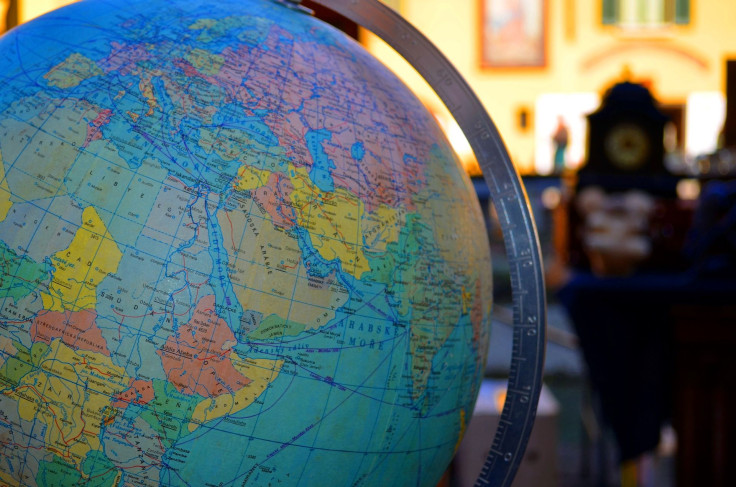South China Sea Dispute: Malaysia, Philippines Follow Suit After India Rejects Beijing's New Map

KEY POINTS
- Malaysia said the claims on the map are "in no way binding"
- Philippines said the map's claims have "no basis under international law"
- Tensions come amid two major summits in September: ASEAN and G20
Malaysia and the Philippines have joined India in rejecting China's new "standard map" that showed Beijing laying claim to some regions within India's territory, several Malaysian maritime locations near Borneo island and a few areas under the Philippine exclusive economic zone.
In a statement Wednesday, the Malaysian Ministry of Foreign Affairs expressed opposition to China's new map, which was released earlier this week.
"Malaysia does not recognize China's claims in the South China Sea, as outlined in the 'China Standard Map 2023 Edition' which covers Malaysia's maritime area. The map is in no way binding on Malaysia," the ministry said, as per a Google translation.
Siaran Akhbar: Pendirian Malaysia Berhubung “Peta Standard China Edisi 2023” pic.twitter.com/XNsNETbQyr
— Wisma Putra (@MalaysiaMFA) August 30, 2023
Malaysia's statement on the matter marked the first time a member of the Association of Southeast Asian Nations (ASEAN) publicly responded to the issue.
Manila has also followed suit, with the Department of Foreign Affairs (DFA) issuing a statement rejecting China's map.
"This latest attempt to legitimize China's purported sovereignty and jurisdiction over Philippine features and maritime zones has no basis under international law, particularly the 1982 United Nations Convention on the Law of the Sea (UNCLOS)," the DFA said Thursday.
‼️READ‼️ #DFAStatement: Philippine Statement on the 2023 Version of China’s Standard Map
— DFA Philippines 🇵🇭 (@DFAPHL) August 31, 2023
Also found in this link 👉🏻 https://t.co/eVz44B7YeU#DFAForgingAhead pic.twitter.com/243mdX4Tzv
The map in question, which was launched Monday by the Chinese Ministry of Natural Resources (MNR), depicts the nine-dash line that China has long based on Chinese historical records. China's claims over virtually the entire South China Sea were rejected by a 2016 international court ruling that said the nine-dash line had no legal basis.
The 2023 edition of China's standard map was officially released on Monday and launched on the website of the standard map service hosted by the Ministry of Natural Resources. This map is compiled based on the drawing method of national boundaries of China and various countries… pic.twitter.com/bmtriz2Yqe
— Global Times (@globaltimesnews) August 28, 2023
The ruling was overwhelmingly in favor of the Philippines, which lodged the arbitral case against China. Beijing has repeatedly rejected the international ruling, and for the past years, has been building infrastructure in parts of the disputed territories.
Before Malaysia's rejection of the Chinese map, India's foreign ministry spokesperson Arindam Bagchi said New Delhi lodged a "strong protest through diplomatic channels with the Chinese side" in opposition of the map's release. "We reject these claims as they have no basis. Such steps by the Chinese side only complicate the resolution of the boundary question," he added.
Smitra Purushottam, founder of non-profit Do Tank "SITARA," told International Business Times that Beijing's release of a map confirmed its "lack of interest in resolving the border issue."
The reactions of India and two ASEAN member nations regarding China's map comes days before the G20 Summit, which will be held in New Delhi from Sept. 9-10. Chinese President Xi Jinping may skip the conference, with Premier Li Qiang attending the summit instead, sources revealed Thursday.
ASEAN countries will also hold the 43rd ASEAN Summit from Sept. 5-7 at the Jakarta Convention Center in Indonesia. Among the topics that will be discussed during the conference is the "ASEAN Maritime Outlook."
Manila has confirmed President Ferdinand "Bongbong" Marcos Jr.'s attendance at the ASEAN summit. The DFA said Marcos Jr. will promote a rules-based international order during the ASEAN summit.
© Copyright IBTimes 2024. All rights reserved.






















